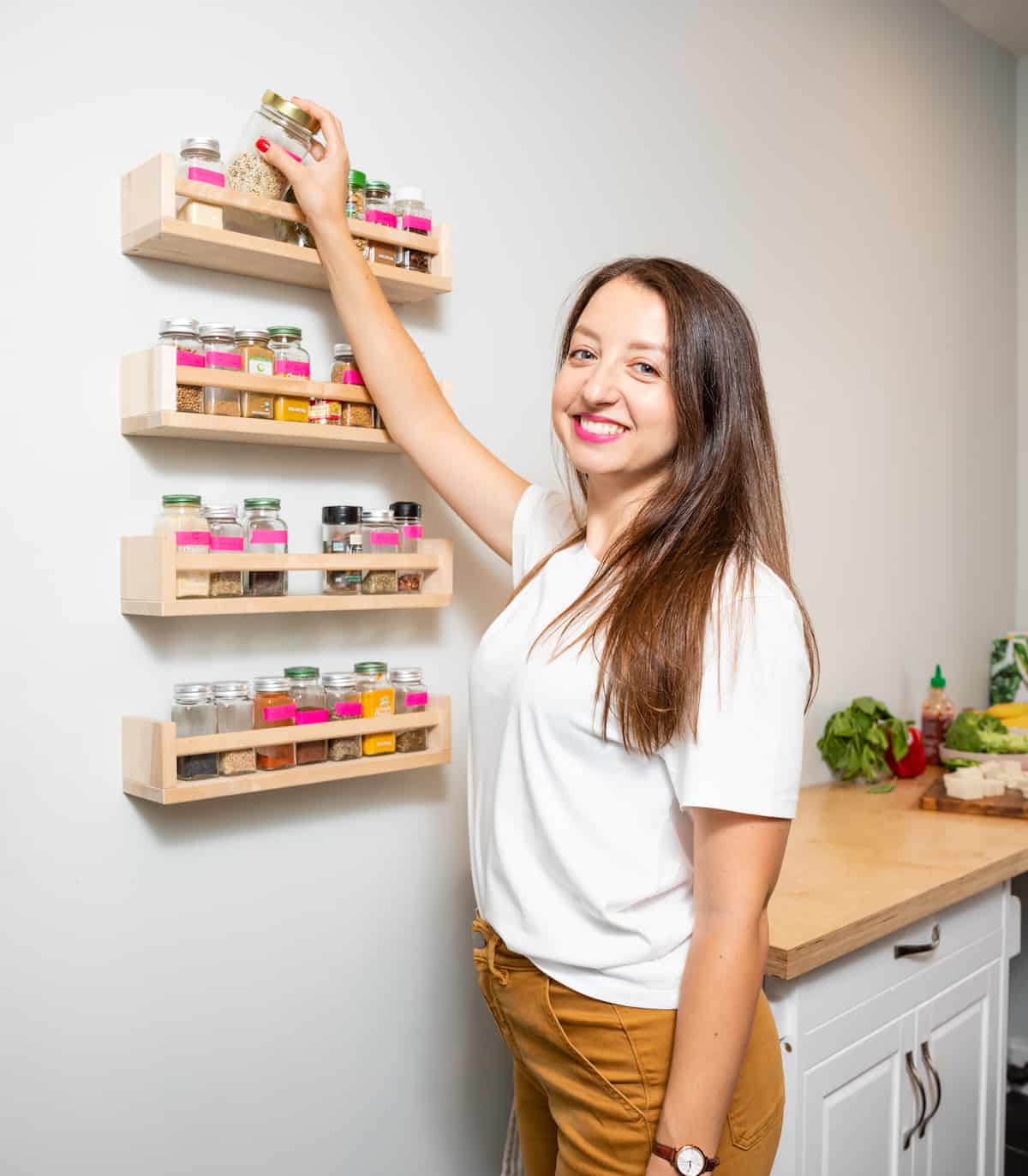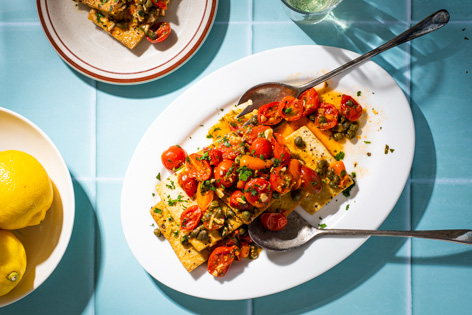Since I first became interested in the connection between food and health nearly a decade ago, I’ve read dozens of books, watched many documentaries, and listened to countless podcasts on the subject. For the most part, they all gave the same recommendations over and over, and the answer to “How should I eat?” became a no-brainer.

(Photo by Lanna Apisukh)
I’ve synthesized all the information I learned thus far into these simple “rules” – my 10 commandments of healthy eating, so to speak. Regardless of where you live or what style of eating speaks to you most (flexitarian, paleo, vegan, etc.), I hope these guidelines will make healthy food choices a bit easier…
1. Choose plant-based whole foods.
As much as possible, build your diet on fresh produce, whole grains, beans and legumes, and nuts and seeds. These have all the nutrients our bodies need to function at their best. “Whole” foods (the opposite of “processed”) are those that have all their edible parts still attached – like sweet potatoes and apples with their skins on, or brown rice versus white. Whole foods have the synergy of all their original nutrients, exactly as nature intended.
2. Have something fresh in every meal.
It could be a handful of greens with a simple vinaigrette, extra tomato slices in your sandwich, or a heap of kimchi on a grain bowl. This small but mighty change can have a big impact. Not only does it give you a boost of micronutrients, but it develops your taste for fresh flavors and crunchy textures, teaching your palate to crave more vegetables over time.
3. Strive for balance.
In order to feel satisfied, we need to eat a balance of macronutrients (carbs, protein, and fat) as well as a variety of textures (crunchy, chewy, creamy) and flavors (salty, sweet, sour, bitter, savory). An unbalanced focus on one type of food (like a smoothie or soup cleanse, for instance) will inevitably cause cravings for its opposite (crunchy things).
4. Not all calories are created equal.
Unless instructed by a doctor to restrict calories for health reasons, calories are not an accurate measurement of the quality of our food. A handful of almonds, for example, is high in calories, but also packed with nutrients that will satiate you. A handful of Cheerios may have less calories, but it’s a manufactured substance with little nutritional value.
5. Don’t eat things you don’t like.
This may seem like a ridiculous suggestion, but it never ceases to amaze me when people force-feed themselves celery sticks or sad salads. Healthy eating can only be sustainable if it’s delicious, so please, don’t torture yourself! If you don’t like kale, try arugula. Tofu not your thing? Eat chickpeas. You get the idea.
6. Aim for 30 plants per week.
Research from the American Gut Project reveals that people who consume at least 30 different plants per week tend to have the most diverse microbiome (i.e. the community of beneficial bacteria living in our gut). That’s because gut bacteria’s favorite food is fiber and fiber comes from plants.
A diverse microbiome is essential to overall health because 70% of our immune system lives in the gut. Different plants house different types of fiber so the more diversity, the better. Don’t worry, “plants” doesn’t only mean vegetables – everything from grains and beans to nuts and herbs counts toward your 30.
7. Beware of greenwashing.
“Greenwashing” is branding designed to make you believe something is healthier than it actually is. Labels like “healthy”, “all natural”, “100 calorie”, or “low fat” should almost always be ignored. Instead, read the ingredient list. If you can’t pronounce or visualize the ingredients (e.g. brown rice vs. methylcellulose), leave the package on the shelf.
8. It’s not all-or-nothing.
Just because plant-based eating speaks to you, it doesn’t mean you have to give up meat and dairy once and for all. It’s the gradual changes – like starting with Meatless Mondays or switching to oat milk from dairy – that make a big difference in the long term.
If you do want to eat animal products from time to time, think of them as treats versus everyday sustenance. Although we’ve been successfully convinced otherwise by marketing campaigns and industry lobbies, we don’t need meat and dairy to meet our protein and calcium needs. These nutrients are easily accessible in plants, which are easier to digest, come along with other micronutrients, and don’t clog our arteries.
9. Avoid food guilt.
Think “treat day” not “cheat day”. A positive outlook on your food choices and a loving approach to your body matters just as much, if not more than eating lots of veg. Try not to punish yourself for indulging in something you love. Savor it, be grateful for it, and move on with your life.
10. Food isn’t everything.
As much as I advocate for kale, it can’t fix everything. Lots of factors contribute to our overall wellbeing – like moving your body, prioritizing sleep, managing stress, feeling connected to other people – and they’re all equally important.

